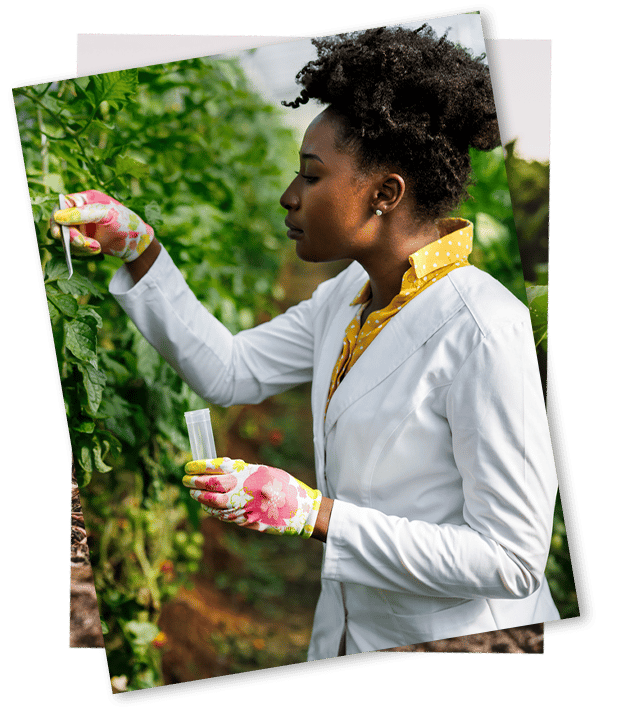
Future Farmers and
Agricultural Specialists
There is a growing need in the agricultural workforce as the global food industry prepares to feed, clothe, and house 9 million people by the year 2050. Also, as the “baby boomer” generation continues to age into retirement, there are a number of job vacancies opening in the federal government, in particular USDA agencies (NRCS, RD, FSA, USFS). Unfortunately, these growing job opportunities are not met with prepared students from minority groups, particularly those with backgrounds in Science, Technology, Engineering, Agriculture, and Mathematics (STEAM). It has been shown that early engagement in STEAM programs, jobs in STEAM, and mentor relationships with STEAM professionals serves to close this gap. The Future Farmers and Agricultural Specialist (2FAS) co-curricular program out of the CISC serves in this capacity to provide experiential education and mentoring in these fields.
Students are engaged in a program during the Fall and Spring semester to complement their class schedule, and then a few students are chosen for the full-time summer internship experience that is given with stipend support. During the fall and spring, students are trained in greenhouse and field production techniques, composting and vermicomposting, and school and community garden outreach. Workshops in these areas were also offered to other University-aged students, and visiting local high school students as facilitated by 2FAS students and staff. During the summer, students work with local farmers, summer youth programs, agricultural and rural policy experts, natural resource professionals, and the local community Farmer’s market while gaining knowledge on small-scale farming techniques, sales, Good Agricultural Practices (GAP), Good Handling Practices (GHP), soil and water conservation, and marketing. Four students with interests in Agricultural Entrepreneurship were also mentored by a staff engaged in entrepreneurship to help with planning, saving, and making contacts for their future.
Additional Information
- Demetrius Hooks
- Raymon Shange
- Matthew Robinson
- Al Hooks Produce
- Woodbridge Farm
- Tuskegee National Forest
- Introducing our Clusters
- Al Hooks Produce

Our Podcast

Sustaining Small Farms, Ranches, and Forests Through the Cluster Approach
Small farms account for less than one percent of total farm sales, and most do not make a profit (have a net loss in income from farming). This situation is exacerbated for socially disadvantaged farmers in the southeast region, as indicated by less than $10,000 gross sales by a large percentage of African American farmers. A similar situation exists in the case of forestlands in the southern USA, in which forests cover more than 40% of the land; though most are small, privately owned land holdings. Tuskegee University College of Agriculture Environment and Nutrition Sciences (CAENS), Tuskegee University Cooperative Extension (TUCE), and the Carver Integrative Sustainability Center (CISC) have worked over the past five years in developing a cluster and a cooperative (Small Farmers Agricultural Cooperative [SFAC]) in the Black Belt Region of Alabama that are engaged in fruit and vegetable production and marketing. Currently, efforts are underway to establish and assist two forest landowner clusters, and two cattle rancher clusters in the region. Through these efforts and lessons learned from the successes and failures of others, it is realized that to successfully establish these “clusters” and for them to be profitable, a considerable amount of support is needed in capital for equipment, training and technical assistance in production and management, startup capital as well as coordination of assistance and participation from USDA agencies. CISC in partnership with public and private partners, works with clusters/cooperatives of socially disadvantaged and underserved farmers and ranchers to focus on substantially increasing fruit, vegetable, timber, and cattle production, marketing and profitability in persistent poverty/strike force counties in Alabama.
Additional Information
- Raymon Shange
- Introducing our Clusters
- Al Hooks Produce
- Restaurants
- Commercial retailers
- Farmers markets






